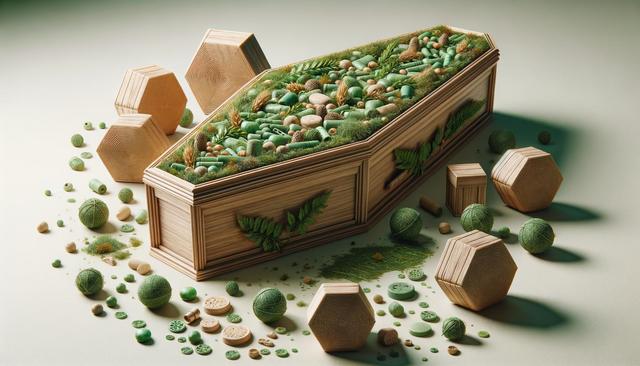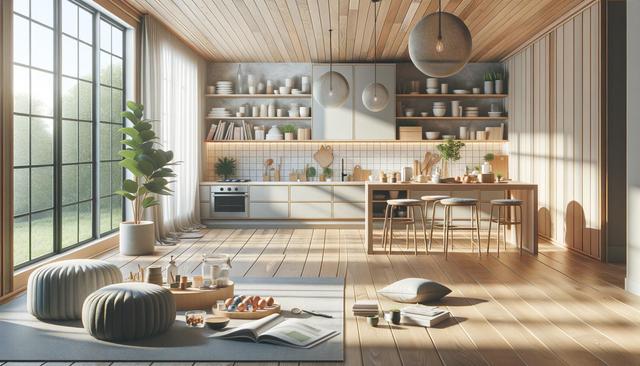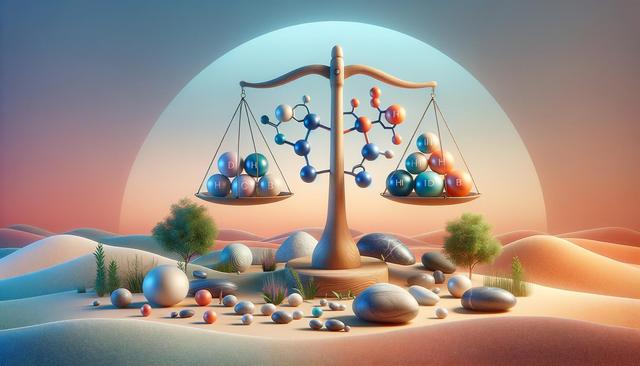Understanding Biodegradable Coffins
Biodegradable coffins are designed with the natural environment in mind, made from materials that break down over time without leaving a lasting ecological footprint. Unlike traditional caskets, which often include chemical finishes, synthetic linings, and metal parts, these eco-conscious alternatives are constructed from eco-friendly materials such as bamboo, willow, seagrass, or untreated wood. These materials support natural decomposition, ensuring that the body and coffin return to the earth in a gentle, sustainable way.
Many biodegradable options are crafted without the use of nails or toxic glues, further reinforcing their environmentally responsible design. These coffins support practices aligned with green burial methods, which avoid embalming fluids and concrete vaults. As a result, they offer a sustainability option that aligns with both ecological values and personal beliefs about respectful departures.
Reducing Environmental Impact
The environmental impact of conventional funerals is often underestimated. Traditional caskets, often made from hardwoods and metals, require significant natural resources for production and contribute to long-term degradation in cemeteries. Moreover, embalming chemicals can seep into the soil, posing risks to surrounding ecosystems. In contrast, biodegradable coffins are part of a broader movement toward carbon neutral burial practices.
By choosing a biodegradable coffin, individuals and families contribute to:
- Lower carbon emissions associated with coffin production and transportation
- Minimized soil contamination due to the absence of synthetic coatings and chemicals
- Reduced use of non-renewable resources such as metal and treated wood
These benefits are especially significant when combined with natural burial grounds, where graves are often marked with plants or stones instead of concrete headstones, and landscaping is left in a natural state to support local biodiversity.
Materials Used in Biodegradable Coffins
The choice of materials plays a crucial role in promoting sustainability. Biodegradable coffins are typically made from:
- Bamboo – a fast-growing, renewable resource
- Willow – harvested through coppicing, a sustainable method
- Seagrass and banana leaf – naturally abundant and renewable
- Untreated pine or cardboard – simple yet effective for natural decomposition
Each material offers unique textures and aesthetics, allowing families to find a personalized yet environmentally sound option. These coffins are often handwoven or handcrafted, adding a layer of artisanal value while supporting small-scale, sustainable industries.
In addition to being a sustainability option, the use of eco-friendly materials ensures that the burial process leaves minimal traces on the environment, aligning with the values of those who lived eco-conscious lives.
Integration with Green Burial Practices
Biodegradable coffins are a natural fit for green burial grounds, which prioritize minimal environmental disturbance. These cemeteries often discourage embalming, vaults, and elaborate headstones, focusing instead on preserving native ecosystems and encouraging regeneration of the land. The integration of biodegradable coffins in such settings helps complete the cycle of life in a respectful and sustainable manner.
Key features of green burial practices include:
- Use of biodegradable containers
- Natural grave markers such as stones or native plants
- No chemical preservatives or concrete vaults
- Preservation and restoration of natural habitats
For those seeking a final resting place that reflects their environmental values, combining a biodegradable coffin with green burial is a meaningful choice. It not only reduces environmental harm but also creates a lasting legacy of ecological stewardship.
Making an Informed Decision
As more people consider the environmental impact of their final arrangements, it’s essential to be informed about the available options. Biodegradable coffins offer a thoughtful balance between honoring personal values and contributing to ecological health. Funeral service providers are increasingly including these alternatives within their offerings, reflecting growing demand for carbon neutral and eco-friendly materials.
When considering a biodegradable coffin, individuals and families may want to:
- Research local green burial grounds
- Consult with funeral directors who specialize in sustainable practices
- Explore the types of materials and craftsmanship involved
- Understand the local regulations regarding green burials
Making this choice can be part of a broader conversation about sustainable living, even after death. It allows individuals to leave behind a positive environmental legacy and inspire others to consider more conscientious end-of-life options.
Conclusion: Embracing Eco-Conscious Farewells
Biodegradable coffins represent a growing shift in how we approach funerals—not just as ceremonies of remembrance, but as opportunities to reflect our values. By embracing sustainability options, using eco-friendly materials, and supporting natural decomposition, families can ensure that a loved one’s final act on earth supports the planet they cherished. For those planning ahead or making arrangements for someone close, choosing a biodegradable coffin offers a meaningful way to honor life while preserving the environment for future generations.




Leave a Reply